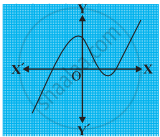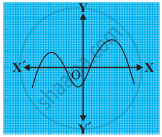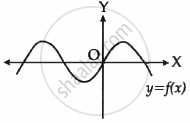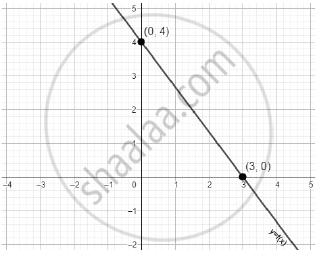Advertisements
Advertisements
Question
Find the zeros of the polynomial `f(x) = x^2 + 7x + 12` and verify the relation between its zeroes and coefficients.
Solution
`x^2 + 7x + 12 = 0`
⇒ `x_2 + 4x + 3x + 12 = 0`
⇒ x(x+4) + 3(x+4) = 0
⇒ (x+4) (x+3) = 0
⇒ (x + 4) = 0 or (x + 3) = 0
⇒ x = −4 or x = −3
Sum of zeroes `= -4+(-3)=(-7)/1=(-"Coefficient of " x)/(("Cofficient of " x^2))`
Product of zeroes = `(-4) (-3) =12/1="Constant term"/(("coefficient of " x^2))`
APPEARS IN
RELATED QUESTIONS
The graphs of y = p(x) are given in following figure, for some polynomials p(x). Find the number of zeroes of p(x).

The graphs of y = p(x) are given in following figure, for some polynomials p(x). Find the number of zeroes of p(x).

A quadratic polynomial, whose zeroes are -3 and 4, is ______.
10. The zeroes of the quadratic polynomial x² + kx + k, k? 0.
If p(x) is a polynomial of at least degree one and p(k) = 0, then k is known as ______.
Consider the following statements.
- x – 2 is a factor of x3 – 3x² + 4x – 4.
- x + 1 is a factor of 2x3 + 4x + 6.
- x – 1 is a factor of x5 + x4 – x3 + x² -x + 1.
In these statements
If f(x) = 5x - 10 is divided by x – `sqrt2`, then the remainder will be ______.
The number of polynomials having zeroes – 3 and 4 is ______.
The graph of y = f(x) is shown in the figure for some polynomial f(x). The number of zeroes of f(x) are ______.

The given linear polynomial y = f(x) has

